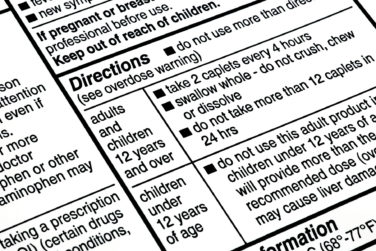A tactic with many names, “Speaker Bureau,” “Peer to Peer,” “Promotional Programs,” “Speaker Programs,” and the like, can powerfully, if controversially, engage clinicians with pharmaceutical companies. In times when pharma marketing efforts and costs increasingly live under a regulatory and political microscope, what makes this initiative successful for some while less so for others?
We’re all glad to see the demise of programs that masqueraded as educational events but were in reality unbridled pharmaceutical-sponsored schmooze-fests, in which key customers were lavishly wined, dined, and entertained for the ultimate purpose of securing a “scrip.” With the aid of the Sunshine Act, and both industry and self-regulated spending limits, distaste for these abuses now generally prevails within our industry.
Executed correctly, today’s speaker bureau is highly efficient, compliant, and accountable, offering events that are powerful attractants to prescribers and influential clinical audiences because of their quality and content, not what’s on the menu or wine list. It’s a key part of most marketing strategies. And in an age where fewer and fewer physicians are allowed to interact with reps in offices or hospital settings, speaker events feed the clinician’s appetite to learn about medicines directly from their makers and from respected peers who have used the products.
Unfortunately, we more often hear scorn for those few who screw it up for everyone else than we hear praise for the many who get it right. Let’s recognize that doing it right is not easy, and examine factors that result in a compliant yet attractive promotional program for clinicians in our heavily regulated environment.
Quality First
Foremost is the realization that quality of engagements, not just volume, is the goal. The judge of quality is the physician attendee; if he or she finds the experience valuable, everyone benefits. Some sponsors have stumbled by focusing on automated program execution, seeking only a speaker bureau vendor that can deliver a high volume of cookie-cutter events at the lowest cost. If, however, the events are perceived as lacking value, or occur in the wrong channels for intended attendees, they’re a waste of considerable investment as well as damaging to goodwill.
Alternatively, a true agency partner will custom-create the right engagements and content to achieve your strategic goals. For example, one such partner may recommend first completing a Clinician Engagement Mapping exercise to identify the best channels and formats for speaker bureau programs, aiming to delight physicians. Engagement Mapping might show, for example, that 57% of your top-tier targets prefer digital learning outlets; thus, the need for a balance of live and online program formats becomes clear. A Medical Communications partner might therefore recommend a podcast series or “KOL On-Demand” activities, or maybe even a broadcast event in addition to a handful of live dinner programs, to ensure targeted delivery of appropriate messages. These nuances may be overlooked if cost savings are the only goal.
Evaluating Your Partnership Options
If you are a pharma company evaluating medical education proposals, it’s useful to ask, what are you getting out of your partnership beyond saving a buck? How exactly do you identify one such powerhouse Medical Communications agency partner that will help strategize a speaker bureau approach, create engaging and compliant content, and cost-effectively support a sales force in compliant program execution? Here are some points to consider when evaluating partnership options:
- What is the vendor’s approach to strategy? Your partner should not have a one-size-fits-all approach. For example, you want a partner that can tailor program recommendations based on strategic marketing objectives—which can vary by therapeutic areas and landscapes—so that customized speaker bureau recommendations will specifically address each client’s unique dynamics.
- How is regulatory compliance managed? Without an experienced, full-time compliance officer or team on board at an agency to protect you at every step of the process, you’re at risk of costly and embarrassing violations. Look for an agency that maintains a team of dedicated staff who audit every single program to ensure compliance adherence and accurate reporting.
- How easy is it for my reps to set up events? Speaker bureau agencies typically range from bare-bones client service to highly personalized attention. For example, agencies could offer a full-time program coordinator who is proactive and responsive to your needs, or alternatively a fully automated program management platform that minimizes communications but streamlines the program execution experience.
- How is feedback collected and applied? The best speaker bureau partners make it almost effortless for all stakeholders to provide feedback, and make regular improvement recommendations based on learnings. You should ask your agency to identify metrics during the strategy-planning phase that will effectively measure more than just cost (i.e., Percentage of target audience reached? Message effectiveness at varying program formats?).
- How are program financials managed and reported? Federal and state reporting requirements are complicated, and accounting for the cost of each attendee as well as the expenses of each speaker can create headaches if not managed by an experienced and perceptive financial team skilled at cost reconciliation and reporting. Look for proof that your agency is meticulous when it comes to managing every penny spent on the behalf of clients.
Whether new to the process or experienced at it, it’s useful for marketing teams to periodically assess peer-to-peer strategies. Ask yourself: Does your sales team have adequate channels to engage your target audience? Are you getting the most out of the channels you do have? Are you measuring the outcomes of your investment? Today’s speaker bureau is a powerful tool in the pharmaceutical marketer’s armamentarium. Now more than ever, make sure you’re choosing yours well.








